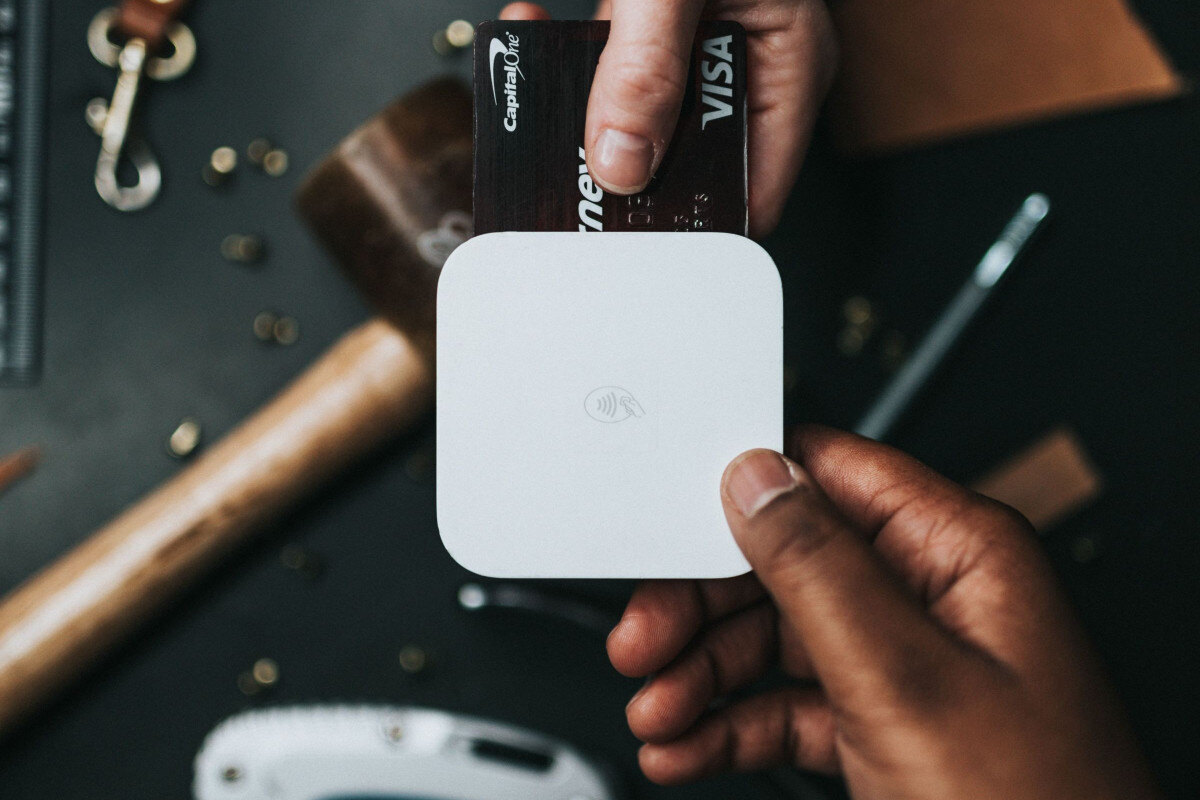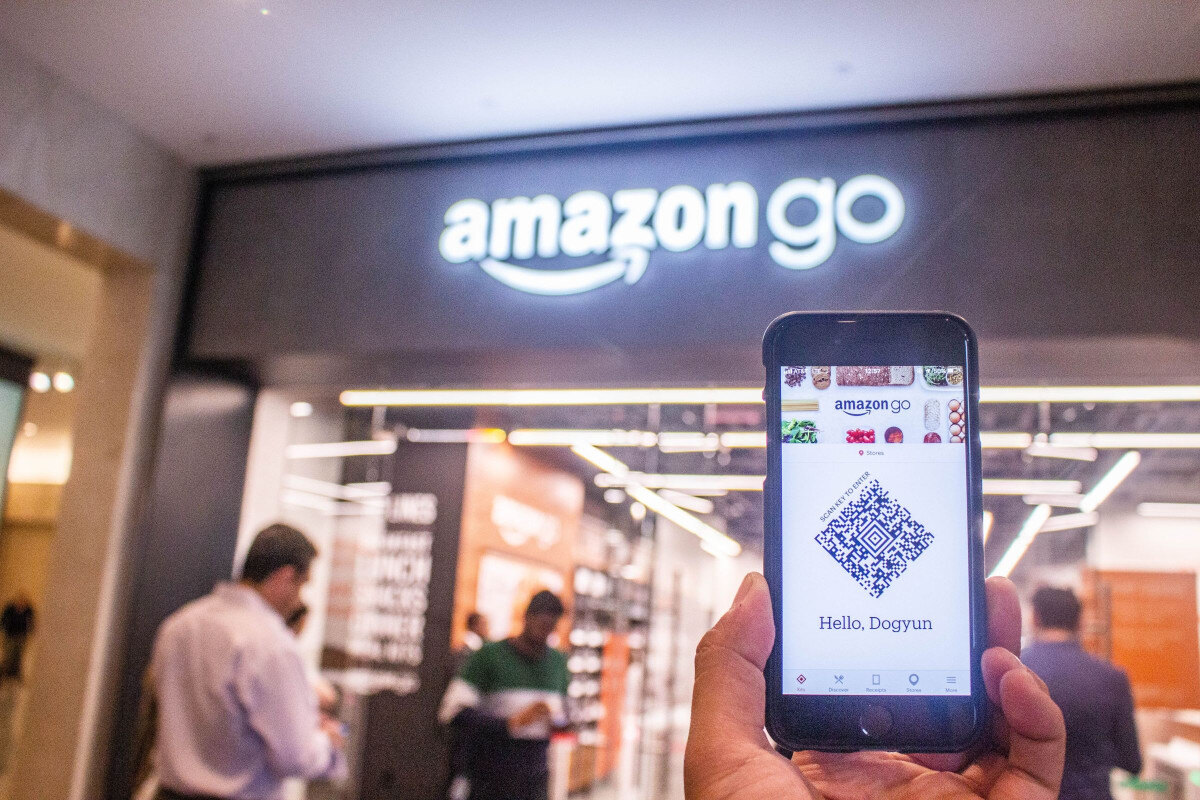Using Customer Future Value for Better Financial Projections
Customer future value (CFV) is how to measure the amount of potential revenue one guest should generate for your business over an identified future...
Platform
Combining online ordering, loyalty, omnichannel messaging, AI insights, and payments in one platform. Paytronix delivers relevant, personal experiences, at scale, that help improve your entire digital marketing funnel by creating amazing frictionless experiences.
A Complete Customer Experience Platform
Online Ordering
Acquire new customers and capture valuable data with industry leading customization features.
Loyalty
Encourage More visits and higher spend with personalized promotions based on individual activity and preferences.
CRM
Build great customer relationships with relevant personal omnichannel campaigns delivered at scale.
Artificial Intelligence
Leverage the most data from the most customer transactions to power 1:1 marketing campaigns and drive revenue.
Payments
Drive brand engagement by providing fast, frictionless guest payments.
Solutions
We use data, customer experience expertise, and technology to solve everyday restaurant and convenience store challenges.
Contactless Experiences
Accommodate your guests' changing preferences by providing safe, efficient service whether dining-in or taking out.
Customer Insights
Collect guest data and analyze behaviors to develop powerful targeted campaigns that produce amazing results.
Marketing Automation
Create and test campaigns across channels and segments to drive loyalty, incremental visits, and additional revenue.
Mobile Experiences
Provide convenient access to your brand, menus and loyalty program to drive retention with a branded or custom app.
Subscriptions
Create a frictionless, fun way to reward your most loyal customers for frequent visits and purchases while normalizing revenues.
Employee Dining
Attract and retain your employees with dollar value or percentage-based incentives and tiered benefits.
Order Experience Builder
Create powerful interactive, and appealing online menus that attract and acquire new customers simply and easily.
Loyalty Programs
High-impact customizable programs that increase spend, visit, and engagement with your brand.
Online Ordering
Maximize first-party digital sales with an exceptional guest experience.
Integrations
Launch your programs with more than 450 existing integrations.
Loyalty Programs
Deliver the same care you do in person with all your digital engagements.
Online Ordering
Drive more first-party orders and make it easy for your crew.
Loyalty Programs
Digital transformations start here - get to know your guests.
Online Ordering
Add a whole new sales channel to grow your business - digital ordering is in your future.
Integrations
We work with your environment - check it out.
Company
We are here to help clients build their businesses by delivering amazing experiences for their guests.
Meet The Team
Our exceptional customer engagement innovations are delivered by a team of extraordinary people.
News/Press
A collection of press and media about our innovations, customers, and people.
Events
A schedule of upcoming tradeshows, conferences, and events that we will participate in.
Careers
Support
Paytronix Login
Order & Delivery Login
Resources
Learn how to create great customer experiences with our free eBooks, webinars, articles, case studies, and customer interviews.
See Our Product In Action
E-Books
Learn more about topics important to the restaurant and c-store customer experience.
Webinars
Watch brief videos for tips and strategies to connect with your customers.
Case Studies
Learn how brands have used the Paytronix platform to increase revenue and engage with guests.
Reports
See how your brand stacks up against industry benchmarks, analysis, and research.
Blog
Catch up with our team of in-house experts for quick articles to help your business.
Are you missing these 5 strategies to transform guest engagement in 2025?
5 min read
Aug 08, 2024

Digital gift cards are more popular than ever, and it’s easy to see their appeal. For consumers, they provide instant delivery and instant gratification—there’s no need to wait for a physical card to arrive. For businesses, they streamline operations, and reduce the costs associated with producing and managing physical cards.
So, here’s the question: Is there still a market for physical cards? Or should you completely phase out physical gift cards in favor of a 100% digital approach?
Let’s discuss the pros and cons of digital vs physical gift cards, so that you can decide which works best for your company.
Let’s first look at digital gift cards’ instant delivery, ease of integration with mobile platforms, and enhanced tracking and security.
One of the biggest benefits of digital gift cards is their instant delivery. Who hasn’t forgotten a special occasion and had to scramble to purchase a last-minute gift card? Digital gift cards solve this problem with their instant delivery, allowing consumers to receive their gift cards via email or text message within moments of purchase.
For consumers, this immediacy is perfect for last-minute gifts or spontaneous occasions. For businesses, digital gift cards eliminate the need for associated logistics, reducing costs associated with physical card production and delivery. There’s no need to worry about shipping delays, missed deliveries, or returns. This streamlined approach saves time and money and ensures a smooth and efficient customer experience.
Additionally, digital gift cards integrate seamlessly with mobile platforms and apps, allowing users to store and manage their cards from their smartphones. This integration improves convenience by enabling consumers to access their gift cards anytime and anywhere, without needing to carry physical cards. Consumers can also view their balances, track usage, and redeem cards on-the-go, using a mobile app.
Finally, digital gift cards provide advanced tracking capabilities and offer robust security features. Digital gift cards are often equipped with sophisticated tracking tools that capture detailed data on card usage. This gives businesses includes insights into how and when cards are redeemed, which can reveal valuable patterns in consumer behavior and preferences.
Your business can use this data to tailor your marketing strategies and refine your product offerings, and also protect against fraud and misuse. The ability to access and analyze this information helps you make more informed decisions, ultimately strengthening your overall strategy and keeping your customers’ purchases safe.
Are digital gift cards the ultimate solution? Not quite. While digital gift cards offer many benefits, they also come with a few disadvantages that businesses should consider.
First, digital gift cards can sometimes lack the personal touch that physical cards provide. They may feel less meaningful, especially during special occasions where a tangible gift is often appreciated.
To address this, consider offering customizable templates and personal messages for your digital gift cards. This can create a more personalized and memorable gift-giving experience.
For example, look for a gift card solution that allows customers to upload or record a personalized video message to accompany their digital gift card. This can be facilitated through an easy-to-use interface on your website or app. Ensure that the video upload process is straightforward and offers guidance on video length and format.
Your gift card solution should also come with user-friendly personalization tools. This may include drag-and-drop features for adding photos, text, and other elements. Make sure the customization options are intuitive and easy to understand—think Canva, not Photoshop!
Second, another disadvantage of digital gift cards is that they may be tricky to handle, especially for customers who aren’t tech-savvy. Older individuals may find digital gift cards challenging to use or access.
It’s essential to think beyond your customers as sources of revenue and consider the human experience of your gift cards. If recipients encounter problems while redeeming or using their digital cards, it can negatively impact their perception of your business, making them less likely to return (they may quit your brand for good). A smooth and user-friendly experience is crucial, as it affects not only customer satisfaction but also how your company is perceived overall.
To bridge this gap, offer clear, step-by-step tutorials on how to redeem and use digital gift cards. Create easy-to-follow guides with screenshots or videos that cover the entire process, from receiving the gift card to making a purchase. Ensure these tutorials are easily accessible on your website and through your customer service channels.
Additionally, provide exceptional customer support to address any issues that may arise during purchase or redemption. This includes having a dedicated support team available via phone, email, or chat to assist with any questions or problems. Consider setting up a helpdesk specifically for digital gift card inquiries and ensure that your support staff are well-trained in handling common issues.
Now, let’s move on to talk about physical gift cards and the advantages that these bring to the table.
First, physical gift cards bring a tangible quality to gift-giving that digital options can’t fully replicate. The ability to hold and hand over a physical card adds a personal touch that many people find meaningful, particularly for special occasions.
However, there is some nuance here—note that preferences for physical versus digital gift cards vary noticeably across generations. Baby Boomers are the most likely to prefer physical gift cards, with 97% of them reporting use of this card type. In contrast, 75% of Millennials and only 57% of Gen Z have used a digital gift card (CapitalOne Shopping).
Millennials purchased the most physical gift cards in 2023, with 70% of them having purchased at least one physical gift card in the year. Following them were Baby Boomers, with 63% making purchases, and Gen Z, with 61%. Gen X was at the bottom, with only 58% having bought physical gift cards (Bank of America).
Second, another advantage of physical gift cards is their perceived value and presentation. A physical card often feels more substantial and thoughtful than its digital counterpart. The card can be elegantly wrapped or presented in a cardholder, which makes it more suitable for gift-giving and other occasions. Ultimately, physical gift cards can convey appreciation and sentiment in a way that digital options may not always achieve.
On the flip side, physical gift cards have their own disadvantages as well.
One of the notable drawbacks of physical gift cards is their susceptibility to loss, theft, or damage. Unlike digital gift cards, which are stored electronically and can be easily retrieved, physical cards are tangible items that can be misplaced, stolen, or damaged. This inherent risk can make potential buyers wary of purchasing physical gift cards, as they might worry about losing the card and its corresponding value.
To address these concerns and boost consumer confidence in purchasing physical gift cards, implement a registration feature. This allows customers to register their gift cards online or via a mobile app, linking them to their personal accounts. By doing so, customers can report lost or stolen cards and request replacements.
Once you’ve done this, you can then promote this registration feature as a significant security advantage, emphasizing that it provides peace of mind and protection against loss. You’ll also want to ensure that the process for reporting and replacing cards is straightforward and efficient, so customers feel reassured that their investment is safeguarded.
Another drawback of physical gift cards is they come with an environmental cost. The production process involves material and energy consumption, which contributes to environmental degradation and waste (BeyondPlastics).This can be a concern for consumers who prioritize sustainability and eco-friendliness when making purchases.
To address these environmental concerns, consider adopting sustainable practices in the production of physical gift cards. Use recycled materials or sustainable resources for both the cards and their packaging, and consider implementing a recycling program for used cards.
Of course, be sure to communicate these sustainability initiatives with your consumers by incorporating them into your marketing materials, social media campaigns, and in-store promotions. This allows you to enhance your brand’s reputation as a responsible and forward-thinking company and emphasize your proactive approach to reducing waste.
While digital gift cards have surged in popularity due to their convenience and advanced features, physical gift cards still hold significant appeal for many consumers. There’s no one-size-fits-all solution, and the preference for digital vs. physical gift cards can vary greatly depending on generational trends and individual values.
Ultimately, the decision on whether to emphasize digital or physical gift cards should be guided by a deep understanding of your target audience. If your customers are younger, tech-savvy, and environmentally conscious, leaning towards digital gift cards might align better with their preferences. Conversely, if your audience values tangible, personalized gifts and places importance on the physical presentation, prioritizing your physical gift cards could enhance their experience and satisfaction.
Want to learn more about how to drive revenue and increase customer lifetime value using gift cards? Book a demo with Paytronix to learn how to do it!

Customer future value (CFV) is how to measure the amount of potential revenue one guest should generate for your business over an identified future...

Customer loyalty refers to a customer’s consistent preference for a particular brand, service, or product. These are the guests who keep coming back...

Efficient inventory management may not sound like the most glamorous thing in the world, but it’s the backbone of any successful convenience store...